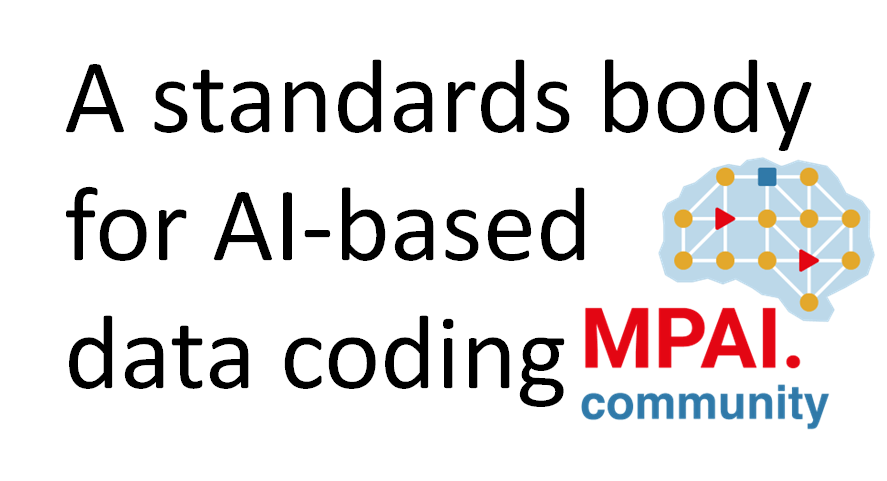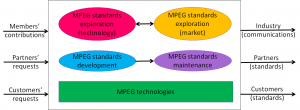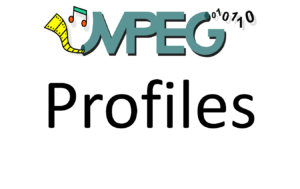Data is information converted to bits. To know what the bits mean, however, we must know the format, i.e., how information is represented or coded in bits. Data with an unknown format has little value and with a known format has a value that is inversely proportional to the effort required to convert it to an understandable format. Therefore, to be “the New Oil of the Digital Economy”, data should have a standard format.
The way international bodies are organised has caused the sprouting of Data Processing-based data coding standards, thus largely defeating the purpose of standards. MPAI – Moving Picture, Audio, and Data Coding by Artificial Intelligence – approaches data coding standardisation building on Artificial Intelligence providing a new way to manage the oil lubricating the data coding standardisation engine – patents – that only too often has instead seized it.
MPAI standards are developed based on a rigorous process: proposals from any party are assessed for their interest, use cases identified, functional requirements documented, a Framework Licence adopted which contains commercial requirements but without prices, dates, rates etc. and published jointly with a Call for Technologies. Anybody can respond with a declaration accepting the Framework Licence. When MPAI approve the standard, it facilitates the identification of a patent pool administrator by patent holders.
Life in the first 29 months of MPAI activity has been intense. In its first year, 3 standards were published. Compression and Understanding of Financial Data (MPAI-CUI) helps predict the performance of a company for more years that with existing solutions. Multimodal Conversation (MPAI-MMC) enables a machine to understand a human’s emotion from text, speech, and face, and responds with synthetic speech and face conveying emotion. Governance of the MPAI Ecosystem (MPAI-GME) outlines the MPAI ecosystem: MPAI issues standards, implementers develop specifications, the not-for profit MPAI Store receives implementations, performs conformance testing, receives performance assessments, posts implementations for end users to download, and receives experience reports.
Since then, MPAI has published AI Framework (MPAI-AIF) providing a standard environment to execute AI applications composed of multi-sourced modules with standard interfaces, Context-based Audio Enhancement (MPAI-CAE) providing solutions enhancing the user experience for Emotion-Enhanced Speech, Audio Recording Preservation, Speech Restoration, and Enhanced Audioconference and Neural Network Watermarking (MPAI-NNW) providing a methodology to assess a neural network watermarking technology in terms of imperceptibility, robustness to attacks, and processing cost to inject or detect or decode the watermarking of a neural network.
Some MPAI standards have been adopted without modifications by the IEEE Standards Association. Three have completed the process: MPAI-MMC (3300-2022), MPAI-AIF (3301-2022), and MPAI-CAE (3302-2022). Two more are in the pipeline: MPAI-CUI and MPAI-NNW.
The MPAI groups hold weekly meetings extending standards such as MPAI-AIF to enable implementation of security configuration, MPAI-MMC to cover a broader set of internal states than emotion, MPAI-CAE to specify an audio scene. A new standard – Avatar Representation and Animation (MPAI-ARA) is also being developed.
MPAI is currently running two video coding projects: AI-Enhanced Video Coding (MPAI-EVC) enhances/replaces existing MPEG-EVC tools with AI tools and End-to-End Video Coding (MPAI-EEV) has already subjectively overtaken MPEG-VVC.
MPAI has developed a fresh and promising new approach to metaverse standardisation. It has already published “MPAI Metaverse Model – Functionalities” Technical Report focusing on what a Metaverse Instance should do instead of how it should do it and is working on “MPAI Metaverse Model – Functionality Profiles” applying the notion of Profiles to functionalities instead of technologies.
MPAI endeavours to also exploit the benefits of AI in Health using federated learning, online gaming to offer better and fairer games, and XR-based venues such as esport to facilitate their deployment.
There are many good reasons to join MPAI. Visit http://mpai.community/ to know more.



